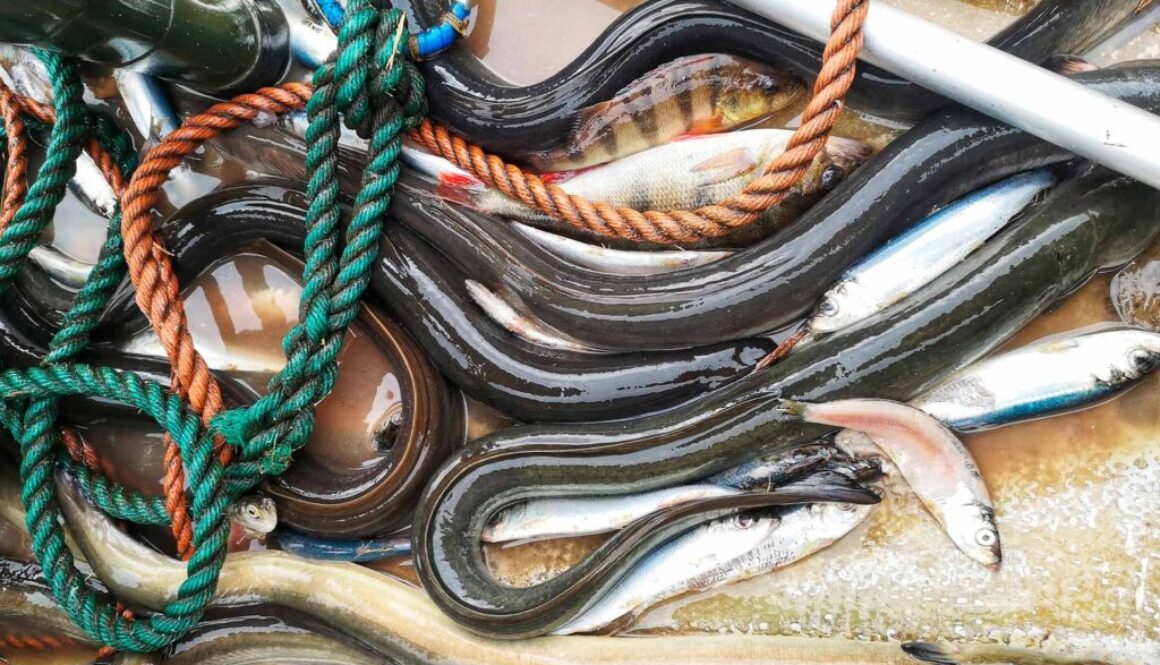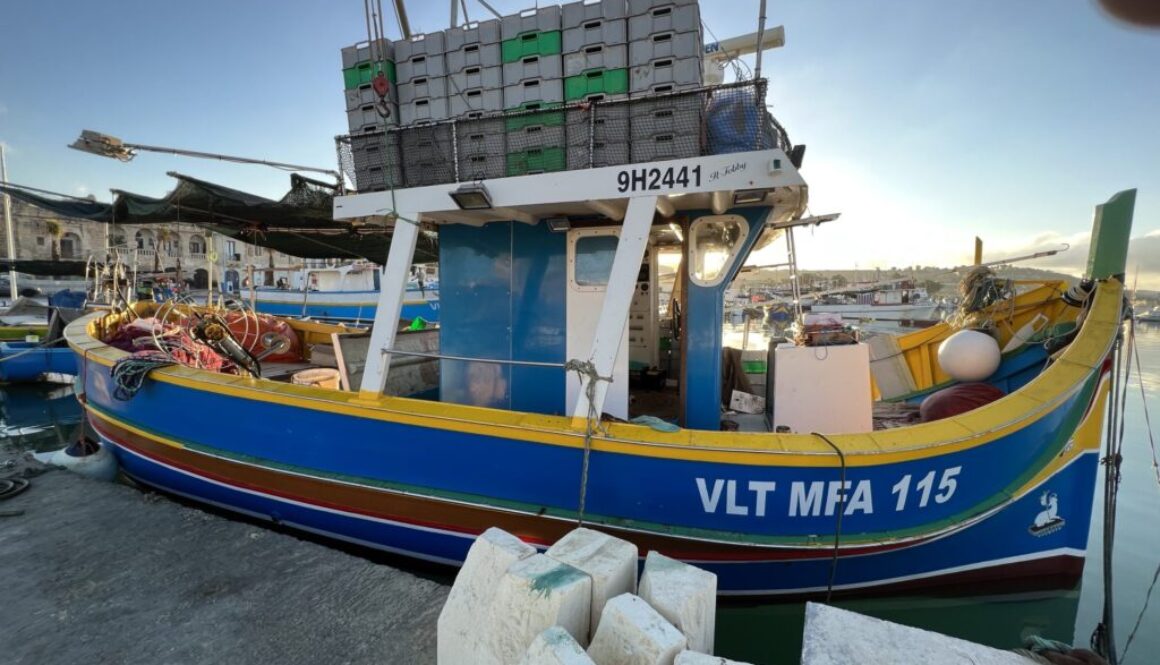Molimo vas da održite ribolov jegulja otvorenim: spasite europsku jegulju i zajednice malog ribolova
Otvoreno pismo poslano e-poštom na adresu: Države članice diljem EU-a
CC: povjereniku za okoliš, oceane i ribarstvo, Virginijusu Sinkevičiusu
Glavna ravnateljica za pomorstvo i ribarstvo, Charlina Vitcheva
BALTFISH i Scheveningen Group
Poštovani ministri
Molimo vas da održite ribolov jegulja otvorenim: spasite europsku jegulju i zajednice malog ribolova
Pišemo Vam kako bismo Vas potaknuli da ne usvojite novu uredbu, o kojoj će se glasati na prosincu na Vijeću za poljoprivredu i ribarstvo, kojom bi se uvela šestomjesečna zabrana ribolova europske jegulje u morskim i susjednim bočatim vodama, kako je utvrđeno u Prijedlogu Komisije o ribolovnim mogućnostima za 2023. godinu.[1].
Ovaj prijedlog i trenutno tromjesečno zatvaranje razdoblje će zauvijek zatvoriti ribolov morskih jegulja. Neće spasiti jegulju[2], a to će potkopati upravljanje jeguljama, koje je – s pravom – smješteno u okvir Europske uredbe o jeguljama iz 2009. (Uredba Vijeća (EZ) br. 1100/2007). Nadalje, ovaj prijedlog ignorira mnoge preporuke koje je ICES dao u svom odgovoru na zahtjev EU-a za tehničku evaluaciju izvješća o napretku Planova upravljanja jeguljama.[3]
Mi, kao predstavnici malih ribara s niskim utjecajem na okoliš iz cijele EU, pozivamo na:
- Sveobuhvatniji pristup, koji koristi mjere povezane s ribarstvom i one koje nisu povezane s ribarstvom, kako bi se osigurao oporavak populacije jegulje
- Obnovljeni fokus i veći napori na provedbi Uredbe o jeguljama, usvojene 2007. godine.
Pozivamo države članice da se dogovore o alternativi trenutnom tromjesečnom zatvaranju.
Molimo države članice da provedu mjere koje nisu zatvaranje ribolova. Kako je navedeno u tekstu ribolovne mogućnosti za Prijedlogom iz 2023. trebala bi postojati alternativa razdoblju zabrane u kojoj države članice imaju priliku provesti vlastite mjere kako bi omogućile nastavak ribolova jegulje, a istovremeno doprinijele oporavku populacije jegulje.
Također pozivamo na poboljšano prikupljanje podataka o bijegu srebrnih jegulja i o novačenju staklenih jegulja. Mali ribari diljem EU-a primijetili su veliko povećanje brojnosti jegulja u svim životnim fazama.
—————————————————————–
POZADINAGodine 2007. države članice EU-a složile su se uspostaviti okvir za zaštitu i održivo korištenje stoka europske jegulje. Države članice EU-a složile su se da se cilj treba postići “dugoročno” (Uredba Vijeća (EZ) 1100/2007).
Prema Evaluaciji Uredbe o jeguljama iz 2020., postignuti su značajni uspjesi u smanjenju smrtnosti uzrokovane ribolovom diljem EU-a, ali i dalje postoji potreba za znatnim poboljšanjem, posebno kada se radi o rješavanju antropogene smrtnosti koja nije povezana s ribarstvom[4].
Mjere propisane nacionalnim planovima upravljanja jeguljama donose se od 2009. godine, no provedba se može i treba poboljšati. Ribari su odigrali svoju ulogu. Nadalje, zaustavljen je pad broja staklastih jegulja. Generacijsko vrijeme jegulje je oko 13 godina, a mjere su na snazi već 13 godina.
Nikada nije bio cilj – niti je to bilo moguće – obnoviti populaciju jegulje u tako kratkom roku. Oporavak populacije jegulje trajat će dugo. Danas smo u boljoj situaciji nego kada je donesena uredba o jegulji. Stvari idu u pravom smjeru.
Unatoč tome, vi – ministri EU-a i Europska komisija (EK) – počeli ste poduzimati mjere izvan dogovorene Uredbe o jeguljama.
Od 2018. godine Vijeće ministara za poljoprivredu i ribarstvo i Komisija premjestili su odluke o upravljanju jeguljom na godišnje pregovore o ukupnom dopuštenom ulovu (TAC) u prosincu.
Ovo smatramo vrlo opasnim potezom za koji vjerujemo da će ugroziti provedbu Uredbe o jeguljama, a time i mogućnost Unije da obnovi populaciju jegulja i očuva povezana ribolovna područja. Rezultat će biti potpuni neuspjeh u postizanju ključnih ciljeva Uredbe o jeguljama.
Oni koji se bave ribarstvom učinili su mnogo. Zatvaranje ribarstva bit će kontraproduktivno i, prema ICES-u, neće biti dovoljno da se osigura postizanje ciljeva.
Ribari diljem EU-a posljednjih 13 godina bave se obnovom populacija jegulja. Smanjili su svoj ribolovni napor u skladu s dogovorenom Uredbom EU-a o jeguljama, u uvjerenju da će države članice i EZ provesti i druge mjere koje nisu vezane uz ribarstvo, kao i uspostaviti prikladan sustav prikupljanja podataka.
Zbog neuspjeha država članica i Europske komisije da to učine, ribari će ponovno platiti cijenu. Mi kao ribari možemo i hoćemo doprinijeti očuvanju jegulja, zapošljavanju i sigurnosti hrane. Ako nam se to dopusti.
Potičemo vas da ne natjerate male ribare da plaćaju najvišu cijenu. Molimo vas da ne zatvarate naša ribolovna područja: dajte Uredbi o jeguljama vremena da djeluje, provedite ostale potrebne mjere u državama članicama i poboljšajte prikupljanje podataka o novačenju staklenih jegulja i bijegu srebrnih jegulja.
S poštovanjem,
Brian O'Riordan
Izvršni tajnik, LIFE
[1] Priopćenje za medije Europske komisije, 22.i listopada 2022., poveznica ovdje.
[2] Iako se očekuje da će smanjenje morskog ulova dugoročno imati pozitivan utjecaj na potencijalni mrijesni stok, nijedna od gore predloženih opcija ne bi bila dovoljna za postizanje cilja 40% biomase iz mrijestilišta iz Uredbe EZ-a o jeguljama za bilo koji morski bazen do 2020. godine.” ICES: Zahtjev EU-a za pružanje savjeta o antropogenim utjecajima na jegulje u morskim vodama EU-a povezanim s ribarstvom, 2017.
[3] ICES (2022.): Zahtjev EU-a za tehničku evaluaciju izvješća o napretku Plana upravljanja jeguljama. Savjet ICES-a: Posebni zahtjevi. Izvješće. https://doi.org/10.17895/ices.advice.19902958.v2
[4] Europska komisija, Glavna uprava za pomorstvo i ribarstvo, MacNab, S., Luchetta, G., Nimmo, F., et al., Evaluacija Uredbe o jeguljama: završno izvješće, Ured za publikacije, 2020., https://data.europa.eu/doi/10.2771/679816


